(!)Due to Microsoft's end of support for Internet Explorer 11 on 15/06/2022, this site does not support the recommended environment.
50,000 Stock items for Same Day Ship Out.
All Categories
Categories
- Automation Components
A wide variety of standard and configurable components for factory automation engineers in industries such as automotive, semiconductor, packaging, medical and many more.
- Linear Motion
- Rotary Motion
- Connecting Parts
- Rotary Power Transmission
- Motors
- Conveyors & Material Handling
- Locating, Positioning, Jigs & Fixtures
- Inspection
- Sensors, Switches
- Pneumatics, Hydraulics
- Vacuum Components
- Hydraulic Equipment
- Discharging / Painting Devices
- Pipe, Tubes, Hoses & Fittings
- Modules, Units
- Heaters, Temperature Control
- Framing & Support
- Casters, Leveling Mounts, Posts
- Doors, Cabinet Hardware
- Springs, Shock Absorbers
- Adjusting, Fastening, Magnets
- Antivibration, Soundproofing Materials, Safety Products
- Fasteners
A good selection of accessories such as screws, bolts, washers and nuts that you may need for your daily engineering usage.
- Materials
Browse industrial materials ranging from heat insulating plates, sponges, to metal and plastic materials in different sizes to meet your various applications.
- Wiring Components
A wide variety of wiring parts for connecting and protecting control and PC parts including Connectors, Cables, Electric Wires, Crimping Terminals and more.
- LAN Cables / Industrial Network Cables
- Cables by Application
- Cables with Connectors
- RS232 / Personal Computers / AV Cables
- Wires/Cables
- Connectors (General Purpose)
- Crimp Terminals
- Zip Ties
- Cable Glands
- Cable Bushings/Clips/Stickers
- Screws/Spacers
- Cable Accessories
- Tubes
- Protection Tubes
- Ducts/Wiremolds
- General Purpose Tools
- Dedicated Tools
- Soldering Supplies
- Electrical & Controls
A wide variety of controls and PC parts for electrical engineers including Controls, Powers, PC parts and more.
- Cutting Tools
A wide variety of cutting tools for many uses and work materials including End Mills, Drills, Cutters, Reamers, Turning Tools and more.
- Carbide End Mills
- HSS End Mills
- Milling Cutter Inserts/Holders
- Customized Straight Blade End Mills
- Dedicated Cutters
- Turning Tools
- Drill Bits
- Screw-Hole-Related Tools
- Reamers
- Chamfering / Centering Tools
- Fixtures Related to Cutting Tools
- Step Drills
- Hole Saws
- Clean Key Cutters
- Core Drills (Tip Tools)
- Magnetic Drilling Machine Cutters
- Drill Bits for Electric Drilling Machines
- Woodworking Drill Cutters
- Drills for Concrete
- Processing Tools
A wide variety of tools and supplies used in processing including Machine Tools, Measurement Tools, Grinding and Polishing Supplies and more.
- Material Handling & Storage
A wide variety of goods used in shipment, material handling and warehouse including Tape supplies, Stretch film, Truck, Shelf, Crane and more.
- Tape Supplies
- Cushioning Materials
- Stretch Films
- Cardboard
- Plastic Bags
- PP Bands
- Magic Tapes / Tying Belts
- Rubber Bands
- Strings/Ropes
- Cable Ties
- Tags
- Labelers
- Unpacking Cutters
- Packing Support Equipment
- Cloth Sheets for Packing
- Conveyance/Dolly Carts
- Tool Wagons
- Tool Cabinets / Container Racks
- Lifters / Hand Pallets
- Container Pallets
- Storage Supplies
- Shelves/Racks
- Work Benches
- Suspended Clamps/Suspended Belts
- Jack Winches
- Chain Block Cranes
- Bottles/Containers
- Bicycle Storage Area
- Safety & General Supplies
A large variety of goods for every kind of factories and offices including Protection items, Cleaning supplies, sanitations, office supplies and more.
- Lab & Clean Room Supplies
A large variety of items used in R&D and Clean Room including research Equipment, Laboratory Essentials, Analysis Supplies, Clean Environment-Related Equipment and more.
- Press Die Components
Choose from thousands of standard stamping die components including Punch & Die, Gas Springs, Guide Components, Coil Springs and many more.
- Plastic Mold Components
Browse our wide variety of mold components including Ejector Pins, Sleeves, Leader Components, Sprue Bushings and many more.
- Ejector Pins
- Sleeves, Center Pins
- Core Pins
- Sprue bushings, Gates, and other components
- Date Mark Inserts, Recycle Mark Inserts, Pins with Gas Vent
- Undercut, Plates
- Leader Components, Components for Ejector Space
- Mold Opening Controllers
- Cooling or Heating Components
- Accessories, Others
- Components of Large Mold, Die Casting
- Injection Molding Components
Browse our injection molding components including Heating Items, Couplers, Hoses and more.
- Purging Agent
- Injection Molding Machine Products
- Accessories of Equipment
- Auxiliary Equipment
- Air Nippers
- Air Cylinders
- Air Chuck for Runner
- Chuck Board Components
- Frames
- Suction Components
- Parallel Air Chuck
- Special Air Chuck
- Chemical for Injection Molding
- Mold Maintenance
- Heating Items
- Heat Insulation Sheets
- Couplers, Plugs, One-touch Joints
- Tubes, Hoses, Peripheral Components
Search by Application
Brands
- Please note that some of the items may take longer lead time to ship due to Japan New Year holidays (29-Dec-2024 to 5-Jan-2025). Early order placement is recommended. We apologize for the inconvenience caused and appreciate your kind understanding. [Details]
- Please note that E-Invoice will be sent to our customers by email. For more information, please read News.
Closed Belts S Type

-Closed Belts S Type from MISUMI.
-This product series has 2 types available, C-LTBJA (Standard type) and C-LTBRA (Both Sides Cloth Lined).
-This is an economy item; The price is cheaper than the MISUMI standard product.
-The material of the timing belt is made of urethane with steel core wire.
-The allowable operating temperature range is -20 ~ 60°C. (Reference Value)
-Urethane belts may change color over time, but will not be affected to strength, etc.
Part Number
Configured Part Number is shown.
Economy Urethane S-Type Closed Belt
- Made from high-grade urethane, these belts offer superior resistance to abrasion, oil, and grease, making them ideal for demanding environments.
- The embedded steel core wire provides exceptional strength and tensile strength, preventing belt elongation and slippage for consistent power transmission.
- The welded joint creates a continuous loop, eliminating the need for separate fasteners and ensuring smooth, uninterrupted operation.
- Timing belt with various tooth pitches and widths
- The optional double-sided cloth lining reduces friction between the belt and conveying objects or pulleys, minimizing noise generation for quieter operation.


![]()
MISUMI Standard
![]()
Cheaper Price
![]()
Product Variety
![]()
3D CAD Support
Conveyer Product Overview
The long toothed timing belt is a belt that freely specifies the number of teeth and is suitable for long-distance timing transmission.
There is also a both sides cloth-lined type suitable for cumulative transmission and noise reduction.
Conveyer Product Feature
Feature 2: There is no exposed steel core wire on the side of the timing belt to avoid scratching the workpiece or hurting the operator.
Feature 3: STD toothed transmission accuracy is high, suitable for high torque transmission. S3M type is also available for small precision equipment.
Feature 4: Conveyer In addition to standard belts, there are also both sides cloth lined belts.
It can reduce the coefficient of friction between the conveying objects or between pulleys, and lower the noise.
Feature 5: Regular sampling of products is made to ensure a strength in the connection. (See the figure below)
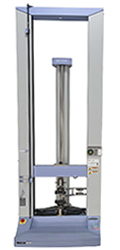
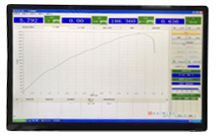
Dimensional Drawing Conveyer

Specifications Conveyer Overview
| Conveyer Type | Conveyer Types |  Conveyer Material Conveyer Material | ||
| ①Body | ②Core Wire | ③ Canvas | ||
| C-LTBJA | Standard | Polyrethane (white) | Steel wire | - |
| C-LTBRA | Both Sides Cloth Lined | Nylon canvas | ||
■Conveyer Specification Table
| Belt Type | Tooth pitch | Ra | Lr | H | h | i | Unit weight g/m (width: 10mm) |
| Standard | |||||||
| S3M | 3 | 1.95 | 1.95 | 1.94 | 1.14 | 0.8 | 25 |
| S5M | 5 | 3.25 | 3.25 | 3.41 | 1.91 | 1.5 | 39 |
| S8M | 8 | 5.2 | 5.2 | 5.3 | 3.05 | 2.25 | 51 |
 Polyurethane Conveyer, belts may change color over time, but strength, etc. will not be affected.
Polyurethane Conveyer, belts may change color over time, but strength, etc. will not be affected. Operating temperature -20℃ to 60℃ (reference value).
Operating temperature -20℃ to 60℃ (reference value). The Conveyer total length is the number of teeth x the tooth pitch. This is the calculated value. MISUMI takes the number of teeth as the basis for shipment.
The Conveyer total length is the number of teeth x the tooth pitch. This is the calculated value. MISUMI takes the number of teeth as the basis for shipment.Example of Conveyer Use
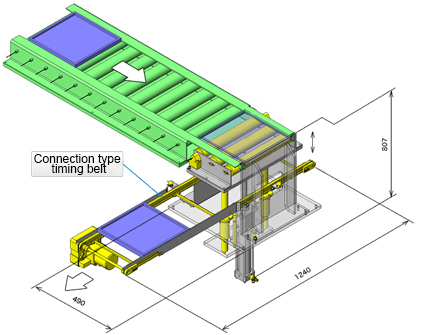
 This Conveyer provides a reference for the use of urethane belts and is not a functional guarantee for actual use.
This Conveyer provides a reference for the use of urethane belts and is not a functional guarantee for actual use.Function Description:
Transfer the workpiece through the motor roller, and use the cylinder mechanism so that the workpiece drop to the lower conveyor for transmission. The purpose of transmission at different heights is achieved.
Application Industries Conveyer
| Conveyer Food | Conveyer Semiconductor | Conveyer Smart phone | ||
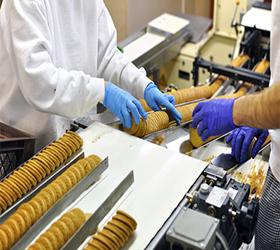 | 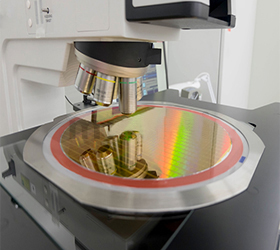 |  | ||
| Conveyer Medical | Conveyer Electronic & Electrical Appliances | Conveyer Lithium battery | ||
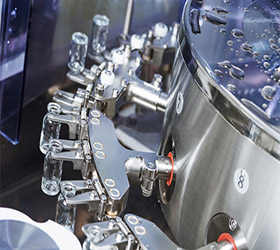 | 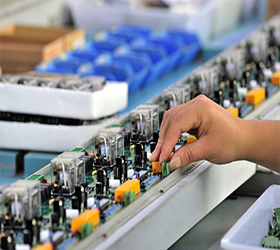 | 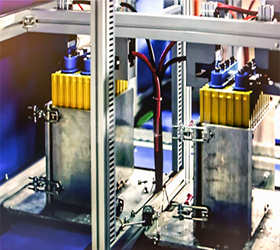 |
Conveyer Precautions
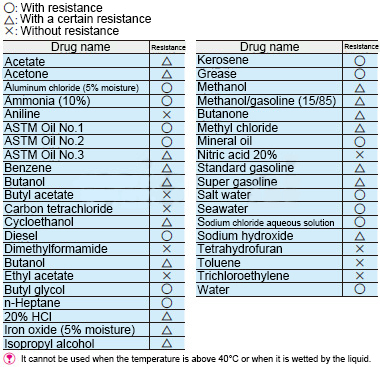
■ Precautions for Conveyer storage
① Avoid sunlight.
② Do not use in direct contact with water, solvent, oil, acid, alkali, UV, ozone, etc.
In particular, do not make oil adhere to the belt, otherwise it will cause the belt to swell, significantly shortening the life of the belt.
③ Operating temperature -20℃ to 60℃.
④ Do not accumulate in large quantities or forcibly bend.
⑤ Do not place it directly on the ground.
⑥ Do not make the belt contact with chemicals.
Related Conveyer Products
| (Economy series) slit Conveyer, timing belt | (Economy series) Conveyer, timing pulley S3M | (Economy series) Conveyer, timing belt connecting tooth plate | ||
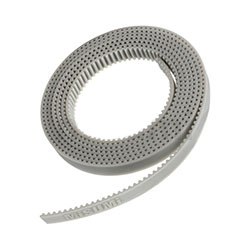 | 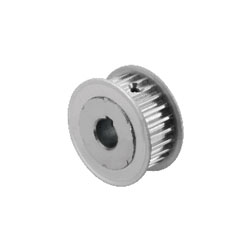 | 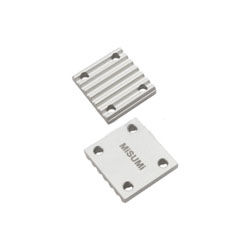 | ||
| Typical Conveyer model: C-TTBO-T5100-200 | Typical Conveyer model: C-HTPA16S3M100-A-P5 | Typical Conveyer model: C-TBCR-T5100 | ||
| Advantages: Number of teeth can be freely specified, suitable for reciprocating motion | Advantages: Less wear of timing belt and longer service life | Advantages: Can prevent the belt from being too tight |
Specification Conveyer Table
Please order after selecting part number and parameters according to the selection steps
 to
to  .
.Part Number Conveyer TYPE Conveyer TYPE | - |  Belt Number · Belt Number ·  Nominal Belt Width Nominal Belt Width | - |  Number of Teeth Number of Teeth | ||||
| C-LTBJA | - | S5M100 | - | 200 | ||||
| Part Number |  Conveyer, Belt Type Conveyer, Belt Type |  Belt BeltNominal Width |  Number of Teeth Number of TeethLower Limit to Upper Limit | Belt Width (mm) | Allowable tension (N) |
 Type Type | |||||
| C-LTBJA (Standard) C-LTBRA (Both Sides Cloth Lined) | S3M | 60 | 150~10000 | 6 | 70 |
| 100 | 10 | 80 | |||
| 150 | 15 | 110 | |||
| S5M | 100 | 100~10000 | 10 | 165 | |
| 150 | 15 | 230 | |||
| 250 | 25 | 400 | |||
| S8M | 150 | 88~6250 | 15 | 240 | |
| 250 | 25 | 450 | |||
| 300 | 30 | 530 | |||
| 400 | 40 | 650 |
 Total Conveyer length is (number of teeth × tooth pitch).
Total Conveyer length is (number of teeth × tooth pitch). kgf = N × 0.101972
kgf = N × 0.101972 The allowable tension is only the permissible value associated with the tensile load.
The allowable tension is only the permissible value associated with the tensile load.■ Comparison Table of Coefficient of Friction (Reference Value)
| Conveyer, Belt type mating parts materials | Toothed Face, Back | |
| Cloth Lined | Standard | |
| Stainless Steel | 0.3 | 0.6 |
| Polyamide | 0.2 | 0.3 |
 The values in the table are examples of Conveyer measured values instead of standard values.
The values in the table are examples of Conveyer measured values instead of standard values. Part Number
CAD Data download and 3D preview are not available because the part number has not yet been determined.
- *In order to open the CAD Data download and 3D preview screen, the part number must be fixed.
- Please confirm the part number from "Specification / Dimension"on the left side, and then perform the CAD Data Download / 3D Preview operation.
| Part Number |
|---|
| C-LTBJA-S3M060-[150-10000/1] |
| C-LTBJA-S3M100-[150-10000/1] |
| C-LTBJA-S3M150-[150-10000/1] |
| C-LTBRA-S3M060-[150-10000/1] |
| C-LTBRA-S3M100-[150-10000/1] |
| C-LTBRA-S3M150-[150-10000/1] |
| Part Number | Standard Unit Price | Minimum order quantity | Volume Discount | Days to Ship | Properties | Belt Type | Belt Width (mm) | Number of Teeth | Belt Nominal Width |
|---|---|---|---|---|---|---|---|---|---|
- | 1 Piece(s) | 12 Day(s) | Standard | S3M | 6 | 150 ~ 10000 | 060 | ||
- | 1 Piece(s) | 12 Day(s) | Standard | S3M | 10 | 150 ~ 10000 | 100 | ||
- | 1 Piece(s) | 12 Day(s) | Standard | S3M | 15 | 150 ~ 10000 | 150 | ||
- | 1 Piece(s) | 12 Day(s) | Both Sides Cloth Lined | S3M | 6 | 150 ~ 10000 | 060 | ||
- | 1 Piece(s) | 12 Day(s) | Both Sides Cloth Lined | S3M | 10 | 150 ~ 10000 | 100 | ||
- | 1 Piece(s) | 12 Day(s) | Both Sides Cloth Lined | S3M | 15 | 150 ~ 10000 | 150 |
Loading...
Basic Information
| Belt Shape | Closed End (Weld Jointing) | Belt Material | Polyurethane | Core Wire Material | Steel Cord |
|---|---|---|---|---|---|
| Belt Shape Type | Round Tooth Profile Super Torque |
Specification/Dimensions
-
Properties
- Standard
- Both Sides Cloth Lined
-
Belt Width(mm)
-
Number of Teeth
-
Belt Nominal Width
-
type
- C-LTBJA
- C-LTBRA
-
Belt Type
-
CAD
- 2D
- 3D
Days to Ship
-
- All
- 12 Day(s) or Less
Specify Alterations
- The specifications and dimensions of some parts may not be fully covered. For exact details, refer to manufacturer catalogs .
Frequently asked question (FAQ)
- Question: Is the joint of the joint processed long type timing belt particularly easy to break?
- Answer: The joint of this belt is hot-melt connected, although the strength is lower than that of the body part, there will be no abnormalities such as breakage when used under normal tension. But it is not recommended to bend the joint, or breakage will be caused.
- Question: What kind of belt is better to use under conditions that require high cleanliness?
- Answer: The use of urethane belts is recommended, which has significantly improved dust drop, compared to the rubber belt.
- Question: The timing belt has been broken after use for a very short period of time. Is there a problem with the quality of the belt?
- Answer: The timing belt is a standard product, and the same batch of products have very few individual quality problems, please refer to Main causes of premature breakage and corresponding countermeasures to troubleshoot the equipment in use.
- Question: What are the advantages of cloth lined timing belts compared to standard ones?
- Answer: Cloth lined toothed belt reduce the coefficient of friction and reduce noise generation.
- Question: Urethane timing belt has changed color after being used for a period of time, will it affect the use?
- Answer: No, the urethane belt may change color over time, but there is no effect on strength, etc.
- Question: What are the two main types of timing belts according to their functions? What is the role?
- Answer: Timing belts are mainly divided into transmission type and driving type. For transmission type, the load can be placed on the timing belt surface for transmission. For driving type, no load is carried, and only the role of transmitting torque is played, which is similar to the role of chain.


How can we improve?
How can we improve?
While we are not able to respond directly to comments submitted in this form, the information will be reviewed for future improvement.
Customer Privacy Policy
Thank you for your cooperation.
While we are not able to respond directly to comments submitted in this form, the information will be reviewed for future improvement.
Please use the inquiry form.
Customer Privacy Policy